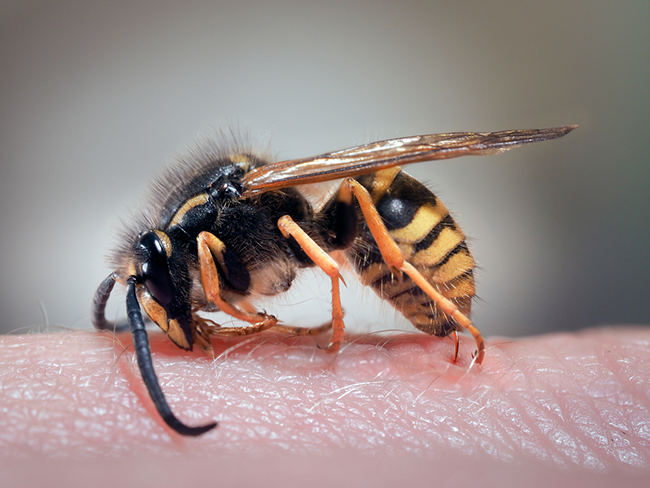Buzz Off Wasps!

Have they ruined your picnic this year? Left you breaking out into a cold sweat when you hear that fear inducing buzzing next to your ear that sends you into a hand swatting frenzy? Well at Sankeys we do not fear the stripy menaces we eradicate them! So do you really need to be scared of them and are the stories in the news to be taken seriously?
Did You Know That There Are Over 100,000 Different Species Of Wasp?
The most common wasp in the UK is the Vespula vulgaris and to a degree to play an active part in the pollination of plants however far inferior to their Bee counterparts.
At around this time of year the queens egg laying cycle has come to an end and the workers become redundant in the roles within the nest. At this point they become drowsy and aggressive in their efforts to be territorial and defend the nest. Wasp’s nests hive of activity (sorry!) with each one producing 1000 – 1500 new queens but in total a nest could contain 5,000 individual wasps! This being the primary reason that you should not attempt to deal with a nest yourself! Usually wasps do not swarm unless aggravated and protecting their own nest. Wasps prefer a dry warm location for their nests and will often nest in lofts attics, sheds, garages and gardens but are not averse to nesting in more busy areas of your home! Are you experiencing a high volume of wasps in your garden or property? Wasps build their nests from chewed wood pulp and saliva hence why you may see them on your fences and garden gates! This creates the distinctive papery walls, should they remain undisturbed they could become significant in size some as large as a football! Other common areas for nesting-include trees and shrubs, beneath eaves although some plants are a natural wasp deterrent so you may wish to stock your garden with wormwood, eucalyptus, mint and citronella but whilst gardening remember to clear away any rubbish and fallen fruit as this will only attract more wasps into your garden!
So You Have Been Stung?
A wasp sting usually wears off within 24hrs and it’s the venom in wasps that contains pheromones. This pheromone signals and alerts other wasps to be aggressive so it is best to stay still until the wasp has flown on its merry way. The usual treatment for wasp stings is antihistamines, antibiotics, steroids, anti-inflammatory treatments, topical and systemic pain killers however each year it is reported that over 1000 people will be hospitalized with a wasp sting induced ailment.
If you find you have a wasp nest in your property, or even if you suspect you may have one, just call us for advice and we will help you to decide on the steps you need to take. It is best to leave the job of locating precisely where the nest is to a professional pest removal company.

